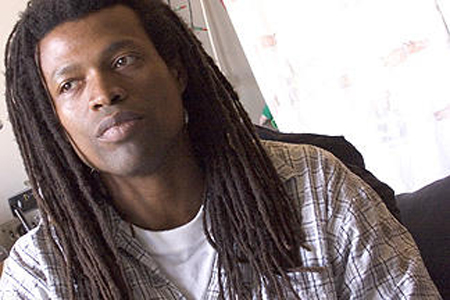
Jazz bassist Melvin Gibbs is an extremely diverse musician, and this musical diversification is exemplified by his new project, Melvin Gibbs’ Elevated Entity.
Hailed by some as the “best bassist in the world,” Gibbs expands his palette further on his forthcoming record, Ancients Speak, including tastes of Brazilian hip hop and African Yoruba culture.
In a conversation with contributor Joe Kurowski, Gibbs discusses Brooklyn’s influence on his music, the effects of a trip to Brazil, and his time as the world-music buyer at Tower Records.
You grew up in Brooklyn. Tell me how you started making music.
Essentially, I started to make music with this guy who lived next door to me. I always wanted to play bass or percussion, or be a DJ, but he told me that there was no money in DJing and that I needed to learn to play an instrument.
There was this place I played at called The Muse, which was kind of like a cultural center where I met Reggie Workman, who played with Coltrane. I met Vernon Reid (Living Colour) in one of the practice rooms at Medgar Evers College through a mutual friend, and that’s how I ended up joining Vernon’s free-jazz band. Then I ended up in a band playing with Alphonia Tims. We’d rehearse over at Ornette Coleman’s loft and he would sit around and critique us.
Then there was The Mama Theater, which was on the Lower East Side on 3rd Street. There were always musicians in there that you could just go and jam with. I met Joe Bowie there, and it was through him that I met James Chance. I had a little “try-out” with him, and that’s where The Contortions came from. And later that turned into Defunkt.
What was the Defunkt scene like?
There is a whole part of history in the ’80s that they left out. There were a whole lot of scenes, but ours is usually skipped over.
Actually, the person who introduced me to Vernon Reid was my roommate and one of the very first graffiti artists in New York. He went by the tag name WG. One of my other friends was the head of these ex-vandals, not really a gang, but this organization with all the graffiti artists in Brooklyn.
For a while in the late ’70s, there was a loft jazz scene. A bunch of people would get together at someone’s loft and we’d have little shows. Any jazz musicians that would come through town would always come and play with us. Warren Smith had some places where we would go and jam. James Chance used to go to these jazz lofts.
What was one album growing up that influenced you to start writing music?
In Brooklyn at that time, I obviously came up listening to funk. I was big into the DJ culture, into the remix guys and all that. I was a big avant-garde head, listening to Ornette Coleman, Pharoah Sanders, and what ended up becoming acid jazz, like The Blackbirds.
There was this one record store that I used to walk by everyday, and one day I was walking past and heard a record and just flipped out. I was like ‘Who is that?!’ It turned out to be a Fela Kuti record.
This guy imported all of the African records, and I spent a lot of time in that store. I probably bought out the guy’s whole catalogue. (Laughs) It’s hard to pick one, because they’re all good. But I’d have to say The Gentleman is probably my favorite Fela Kuti album.
